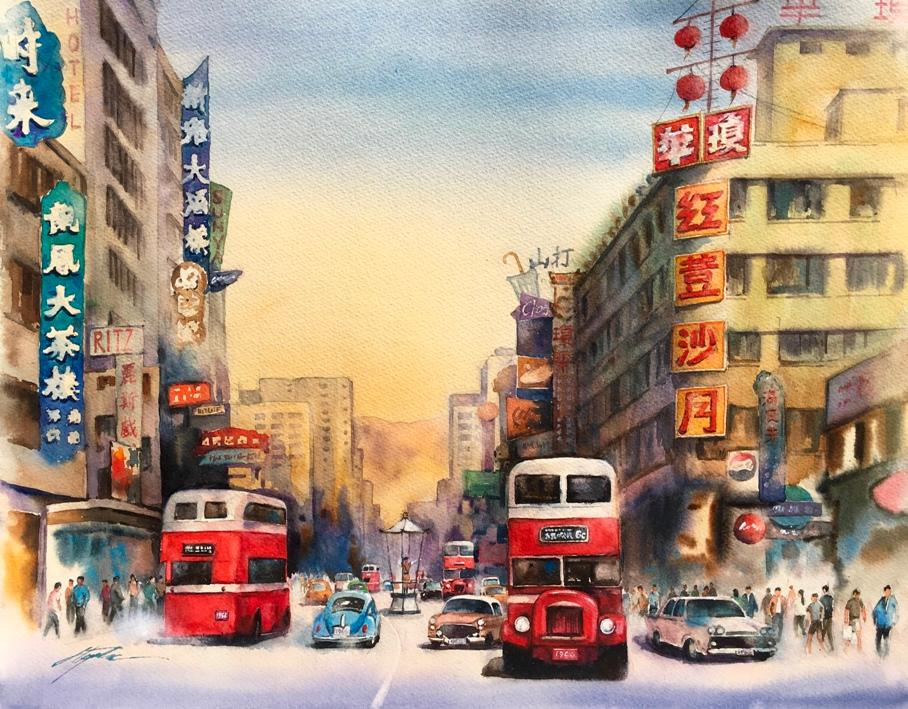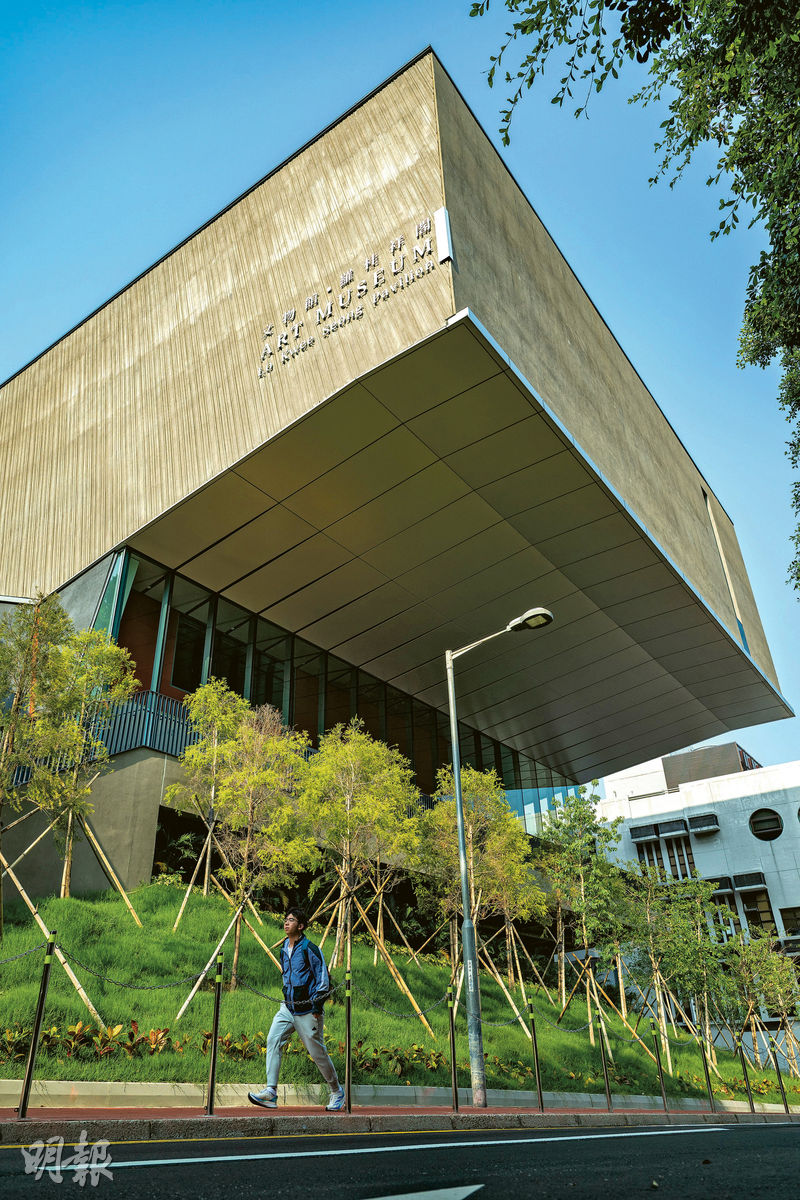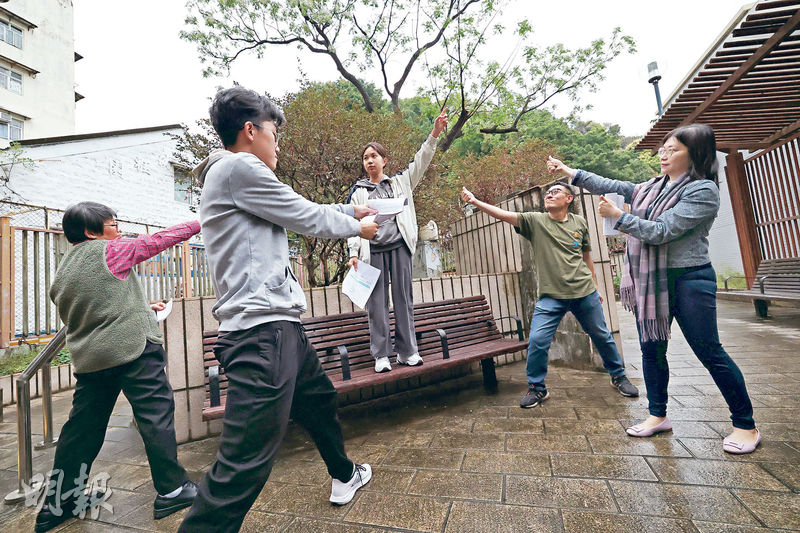【明報專訊】一名警務處高級助理處長被發現身處灣仔一間懷疑賣淫場所,既引發對該名高級警務人員誠信的質疑,亦惹來對香港警方如何公正調查事件的疑問。
據有關報道,該名高級助理處長在3月底一次警方行動中被發現。該次行動拘捕了6名相信在該場所工作的女性。事件交由有組織罪案及三合會調查科(俗稱O記)調查。5月18日,一名總警司向傳媒表示,發現蔡展鵬時並未發現證據顯示他在該處進行違法或不道德行為。
基於三個理由,事件非常有問題。首先,是涉事警務人員職位之高,只低於警務處長兩級,令人質疑其判斷力。其次,身為國安處第二把交椅,工作性質之敏感,令人擔心他可能會遭三合會或情報組織損害。第三,警隊對於這類事件完全沒有必需的公正調查程序,令人嚴重關切警隊的問責。
有報章說,涉事警務人員是在一間名為Viet Spa的地方被發現,位於莊士敦道勝意大樓一樓。大廈始建於1968年,是幢殘破的舊樓。
只要簡單在Google搜索一下Viet Spa,便會找到一個性服務的網上討論區有關Viet Spa的評價。2019年2月一則留言說,先後看了3個女孩,女孩可以提供手淫服務,費用是500元。2020年3月一則留言則表示該處有6至7間房,每間房的女孩數目差不多,服務包括40分鐘按摩和手淫。2021年3月一則留言則說VietSpa的Tg改了做DaisySpa,女孩的陣容也有點不同,不過還是提供乳交服務。
這些留言巨細無遺地描述了Viet Spa的性服務。只要再看看場所的介紹以及網上對該處提供性服務的女孩評價,都顯示Viet Spa是個賣淫場所。
灣仔有不少賣淫場所,該區數十年來一直是賣淫及性服務的中心。因此,三合會一直活躍參與及控制和參與當地的賣淫場所。新義安多年來在灣仔的色情業有着龐大的商業利益。他們一向控制灣仔的賣淫場所、酒吧、保安、停車場,放高利貸、收保護費和敲詐勒索。如果一個高級警務人員經常光顧賣淫場所,三合會成員會毫不猶豫加以勒索和操縱。
三合會操縱警員有長久歷史
三合會操縱灣仔警務人員有着長久的歷史,包括1960年代及1970年代臭名遠播的葛柏。據廉政公署網站,他從一名華裔警司收取2.5萬元賄款,以安排對方出任灣仔警署警司的「肥缺」。直至最近2013年,灣仔一名警司因接受飲食折扣優惠被廉政公署拘捕,公職人員行為失當罪成。向警務人員提供「免費按摩」或「免費服務」對罪犯來說是輕而易舉的下一步。
就着賣淫場所,對警務人員的規則雖然並不明確,但對他們的操守是有所期望的。根據《警察通例》50章「罪惡活動」,「賣淫場所」是指任何處所、船或地方(a)由兩人或超過兩人完全或主要用作賣淫,或(b)完全或主要用以組織或安排賣淫,或跟組織或安排賣淫有關而使用。從網上討論區看來,該處有超過3名女性提供性服務,符合警方對「賣淫場所」的定義。
《警察通例》第6章「行為及紀律」寫明,「除非為執行職務,警務人員不得與任何已知罪犯或三合會會員來往……警員亦不應與可疑人物或不良分子來往」。第6章亦列明,「除須喬裝打扮以執行職務外,警務人員須時刻注意行為舉止及衣著儀表,以維護警隊的聲譽」。
如此看來,一名警務人員在知情下仍經常光顧賣淫場所,幾可肯定干犯《警察通例》有關行為及紀律的規則。
身為警務處高級助理處長也應該深明,僅僅在賣淫場所出現已代表他判斷錯誤,更有可能令其性質敏感的工作受損。有組織罪案及三合會調查科總警司說,未有證據顯示他在該處進行違法或不道德行為。但問題不在於「違法行為」,而是一名高級警務人員的判斷及操守。問題不在於「不道德行為」,而是一名高級警務人員的誠信及誠實。
《警察(紀律)規例》所列的「違紀行為」包括「其行為刻意致使公共服務聲譽受損」。該規例雖只適用於督察及初級警務人員,但較高級的警務人員則要遵守《公務人員(紀律)規例》。
一名警務處高級助理處長身處顯然是賣淫的場所,要公眾相信那並非可導致紀律處分的嚴重操守行為,那是不切實際的。
雖然可能沒有證據顯示他在賣淫場所犯下刑事罪行,但他已令自己暴露於三合會成員或其他罪犯勒索的風險之中。
處長交O記調查 不是公正程序
至於誰來決定該行為是否合適,亦產生另一問題。警務處長將此事轉介O記調查,並直接向他匯報。這常用的方法可讓他控制調查,但那不是一個公正的程序。
警隊缺乏的,是一個清晰明確的程序指明誰人對高級警務人員展開公正調查。程序應清晰規定,令警務處長不能自行決定將調查交給O記的普通CID人員。有關警察行為的投訴應由獨立公正的專業行為專家調查。
一名如此高級的警務人員在欠缺適當判斷下行事,損害其敏感及可信的地位,這有很多教訓值得汲取。
有關警察操守的調查缺乏一個獨立和公正的調查機構來處理。正是因為沒有一個公正的調查程序,警務人員行事缺乏問責。
我們大有理由追問:誠信和誠實在哪裏?很多年前,香港人會說「好仔唔當差」。但在1980年代和1990年代,警隊中傑出領袖輩出,結束了這種風氣,並表明香港警察可以正直和誠實地服務公眾。香港現在再次需要這樣的警察領袖。
(譯文有所減省)
作者為前警官
Where is integrity and honesty?
A Senior Assistant Commissioner of Police (SACP) has been found inside a suspected vice establishment in Wanchai District, raising concerns regarding the integrity of such a senior officer and the processes in the Hong Kong Police to impartially investigate such an incident.
Reports of the incident state that the SACP was found inside the premises at the end of March during a police search, which also led to the arrest of six women who presumable were working in the establishment. The matter was passed to the Organised and Serious Crime Bureau to investigate, and on 18 May a Chief Superintendent announced to the press that "At the time when Mr Choi was found… we have no evidence to suggest he was there doing any illegal acts or committing any immoral acts."
The case is highly problematic for three reasons. Firstly, the seniority of the officer (SACP, two ranks below the Commissioner) raises questions about his judgement. Secondly, the sensitive nature of the job that the officer is doing, as second in command of the National Security Bureau, raises questions regarding potential compromise of the officer by triads or intelligence agencies. Thirdly, the complete lack of a mandatory impartial investigation process for such incidents raises grave concerns regarding the accountability of the Police.
Newspapers have reported that the officer was found inside the Viet Spa, located on the first floor of the Senior Building, which faces on to Johnson Road with a rear entrance on Thomson Road, Wanchai. The building was occupied from 1968, and is hence an old building in poor condition.
A simple Google search for "Viet Spa" reveals an Internet forum for sexual services with multiple comments regarding the Viet Spa. One user stated in February 2019, "I booked a time but not anyone in particular, so asked for a lineup. Little bit annoying they didn't all come at once, but girl #1 called girl #2, then #2 called #3…I gave the universal sign for handjob and she said yes. I gave the sign for blowjob and she said no. I asked how much and she said 500HKD. For 600HKD she would take her clothes off."
A user in March 2020 stated, "From what I can see they have 6-7 rooms with a similar number of girls working…Massage was excellent, lasted around 40 mins. Then a highly skilled HJ - she explained a bit afterwards all the techniques - nice to see them take pride in their work!"
A user in in March 2021, "So the TG channel of VietSpa got changed to DaisySpa(change of owner) and bit different roaster of girls were adtervised… She used those jugs to give me a fun boob job while making eye contact."
The multiple reviews on the Internet forum detail sexual services provided in the Viet Spa, which are limited to a "hand job" (masturbation) in addition to the massage. It is clear from the multiple Internet posts, from the profile of the establishment, and from the Internet reviews of multiple girls available to perform sexual services (i.e. masturbation) that the Viet Spa is a vice establishment.
There are multiple vice establishments in Wanchai District, which has been a centre for prostitution and sexual services for decades. As a result, there is a high degree of triad society control and involvement in vice establishments in the area. The San Yee On triad society in particular has for many years had major business interests in vice in Wanchai. The San Yee On triad factions in Wanchai have traditionally controlled vice establishments, bars, bouncer services, car parking, loan sharking, protection, and extortion. Triad society members would not hesitate to blackmail and manipulate a senior police officer if he was frequenting a vice establishment.
There is a long history of police officers in Wanchai being manipulated by triads, including the infamous Peter Godber in the 1960s and 1970s who the ICAC reports on their website accepted "a bribe of HK$25,000 from a former Chinese superintendent for helping the latter secure the "fat job" of superintendent in the Wan Chai Police Station." As recently as 2013, a Police Superintendent in Wanchai District was arrested by the ICAC and convicted of 'Misconduct in Public Office’ in connection with accepting discounts on food and drinks. It is an easy next step for criminals to offer a "free massage" or a "free service" to a police officer in a vice establishment.
The rules for police officers in regard to vice establishments are not explicit, but there are expectations of police officers regarding their conduct.
Police General Orders (PGOs) Chapter 50, Vice, defines a "Vice Establishment" as "a premises, vessel or place that is (a) used wholly or mainly by two or more persons for the purpose of prostitution; or (b) used wholly or mainly for or in connection with the organising or arranging of prostitution." The Internet forum shows that there are more than three females on the premises and they provide sexual services, which meets the police definition of a vice establishment.
Police General Orders (PGOs) Chapter 6, Conduct and Discipline, states that "Other than in the course of duty, a police officer shall not associate with any known criminal or triad personality… Officers are also advised that other than in the course of duty, they should not associate with persons of doubtful or undesirable reputation." Chapter 6 also states that "A police officer, unless on duty in disguise, shall deport and attire himself/herself and appear at all times in a manner likely to reflect credit on the Force." The same chapter goes on to state "A police officer, unless on duty in disguise, shall deport and attire himself/herself and appear at all times in a manner likely to reflect credit on the Force."
There is a strong case to be made that a police officer who knowingly frequents a vice establishment is immediately breaching Police General Orders relating to discipline and conduct.
It should be very clear to an officer as high ranking as a SACP that just being in a vice establishment places him in a position of exercising poor judgement and of potentially compromising his sensitive job.
The Chief Superintendent of the Organised Crime and Triad Bureau stated that after investigation "At the time when [the officer] was found… we have no evidence to suggest he was there doing any illegal acts or committing any immoral acts." The issue is not an "illegal act", but judgement and conduct of a senior police officer. The issue is not "immoral acts" but the integrity and honesty of a senior police officer.
The Police Discipline Regulations are defined in law and include the disciplinary offence of "conduct calculated to bring the public service into disrepute." These apply to junior police officers and Inspectors, but more senior officers are accountable under the Public Service (Disciplinary) Regulations.
It is not credible to expect the public to believe that a Senior Assistance Commissioner of Police being found in what is clearly a vice establishment is not a serious matter of conduct that should lead to disciplinary charges.
Whilst there may not have been evidence of a criminal offence committed by the SACP in the vice establishment, he has exposed himself to the risk of coercion by triad society members and other criminals in Wanchai District.
A problem arises in who decides if such conduct is inappropriate? The matter was referred by the Commissioner of Police to the Organised and Serious Crimes Bureau, which is often used by the CP to investigate matters and report back to him directly. This provides strong control over the investigation, but is not an impartial process.
What is lacking from the Police is a clearly defined process that requires who must conduct an impartial investigation of a senior officer. This should be clearly defined so that the CP cannot have the discretion to pass the investigation to ordinary CID officers in the OCTB. Complaints of the conduct of police officers should be investigated by independent, impartial experts in professional conduct.
A very senior officer has compromised his sensitive and trusted position by acting without appropriate judgement. There are many lessons from this case.
There is a lack of an independent and impartial investigative body to deal with the investigation of police officers conduct. There is a lack of accountability for police officers because there is no impartial investigation process.
It is reasonable to ask where is the integrity and honesty? Many years ago people in Hong Kong would say Ho jai ng dong chaai (好仔唔當差) – "Good boys don't become cops". In the 1980s and 1990s some outstanding senior police leaders ended this culture and showed that the Hong Kong Police could serve the public with integrity and honesty. Hong Kong needs such police leaders once again.























